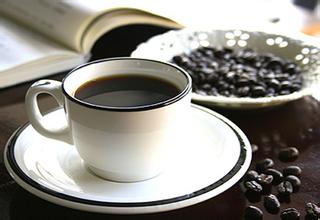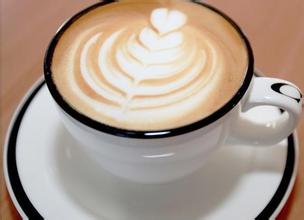Coffee Flavor and Taste characteristics of Hadassen Coffee Garden in Ecuador
Large-scale police protests broke out in Ecuador's capital Quito and other major cities, causing riots. President Correa was attacked and trapped for a time, then rescued with the support of the military, parliament and the international community. On May 7, 2011, Eritrea held a referendum on 10 political and social issues, including judicial reform and media control, all of which were adopted. Since 2012, the political situation in Eritrea has remained stable.
In the mid-15th century, there were legends about enchanted mysterious islands among fishermen fishing in the western Pacific Ocean of South America. It is said that the islands can sometimes be seen clearly from a distance, but when the ship approaches, it disappears again; sometimes it looks like a galleon, sometimes it shows the shape of a witch. Fishermen call these islands "Devil Island", thinking that they may be ruled by demons like the sea banshees in the Odyssey. The island, which fishermen call "Magic Island", is now the Galapagos Islands.
In 1535, Frey Thomas de Belanga of Spain and others stumbled upon the Galapagos Islands. Thomas was born in 1487 on the Douro River in the province of Soria, Spain, and was the fourth bishop of Panama at that time. He was ordered to go to Peru. When his ship set sail from Panama on February 23, under the impact of a strong current, they were taken to the unknown sea and discovered a small island in the Galapagos Islands on March 10. At that time, there were only two days of fresh water left on the ship, and the sailors landed in lifeboats and found a large number of seals, sea turtles, giant tortoises that could carry people, and iguanas that looked like venomous snakes, but they did not find fresh water, so they sailed to another larger island more than 20 kilometers away. As there was still no wind, it took them several days to get there, and the water ran out quickly and had to starve, including no grass for the horses on board, including Frey Thomas de Belanga, 340 years after the island was discovered, in 1875, a native named Corworth came to St. Cristobal Island, where he established the Hasunda Cafe. And planted about 100 hectares of Arabian bourbon coffee trees. Because the plantation is located between 140m and 275m above sea level and the climate is equivalent to that of 915m to 1830 m in the interior, the unique geographical conditions are very suitable for the growth of super hard coffee beans (SHB) with high acidity, so this kind of high-quality coffee is located here. Port Guayaquil is the largest seaport in Ecuador. It faces the Pacific Ocean and backs against Mount Santa Ana. The nearby island of Pune serves as a natural barrier to protect the harbour from storms. There is a wharf in the south, which is more than 900 meters long. Ships from different parts of the world flying various flags are moored in the harbor. The port railway leads to the capital Quito, and highways connect Quito with other cities in the country. Bananas, cocoa, coffee, cotton and other products from all over the country are collected and distributed here. Guayaquil has also played an important role in the history of friendly exchanges between the peoples of China and Ecuador. As early as the 18th century, Chinese clothing, textiles and other goods were shipped to Ecuadorian cities through Guayaquil. In August 1978, the Chinese cargo ship Jialing River arrived here for the first time. Most of the import and export goods of the two countries are also transported through Guayaquil and Ecuador implements the presidential system. On November 26, 2006, Correa, a candidate of the Sovereign Motherland Movement, was elected president in the second round of presidential election.

Important Notice :
前街咖啡 FrontStreet Coffee has moved to new addredd:
FrontStreet Coffee Address: 315,Donghua East Road,GuangZhou
Tel:020 38364473
- Prev

Unique aroma of Ecuador Santa Cruz Manor Coffee Flavor and Taste
Guayaquil is a big city in Ecuador. It has always been thought that cities near the equator will become hot dogs, but although Guayaquil is close to the equator, it is refreshing because it is close to the bay and the sea breeze is blowing. Even in the hottest season, it is not unbearably hot. The monthly average temperature is 28.1 degrees in January and 14.6 degrees in July. Lizard Park is a must place to go.
- Next

Introduction to the flavor and taste of coffee from Chateau San Pedro, Jamaica
The Caribbean Sea is a warm, romantic and mysterious sea, and a lot of good coffee is also around this ring sea, such as the Blue Mountains of Jamaica, Dominica, Crystal Mountain of Cuba, Yuko of Puerto Rico and so on. These are the most famous rare and expensive coffee in the world. These island beans give people a light smell of milk and elegant flowers, delicate and soft acidity, although it is still difficult to avoid coffee caused by the island's muggy climate.
Related
- Does Rose Summer choose Blue, Green or Red? Detailed explanation of Rose Summer Coffee plots and Classification in Panamanian Jade Manor
- What is the difference between the origin, producing area, processing plant, cooperative and manor of coffee beans?
- How fine does the espresso powder fit? how to grind the espresso?
- Sca coffee roasting degree color card coffee roasting degree 8 roasting color values what do you mean?
- The practice of lattes: how to make lattes at home
- Introduction to Indonesian Fine Coffee beans-- Java Coffee producing area of Indonesian Arabica Coffee
- How much will the flavor of light and medium roasted rose summer be expressed? What baking level is rose summer suitable for?
- Introduction to the characteristics of washing, sun-drying or wet-planing coffee commonly used in Mantenin, Indonesia
- Price characteristics of Arabica Coffee Bean Starbucks introduction to Manning Coffee Bean Taste producing area Variety Manor
- What is the authentic Yega flavor? What are the flavor characteristics of the really excellent Yejasuffi coffee beans?

